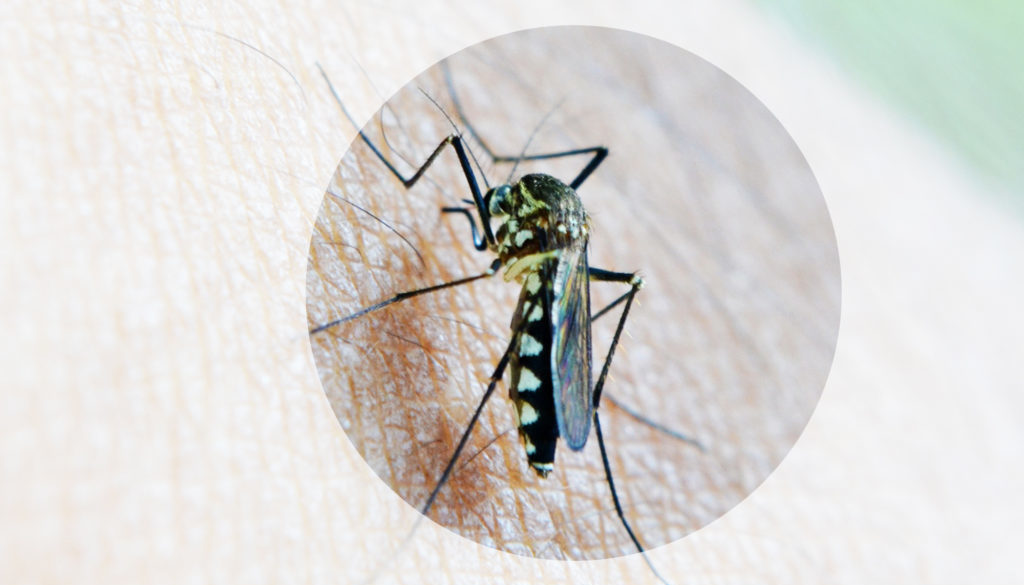How to Choose an Insect Repellent for Travel
DEET vs. Icaridin : How to Choose an Insect Repellent for Travel
DEET, icaridin, citronella, eucalyptus – the choices for insect repellents are almost endless! When travelling to areas with mosquito borne diseases (eg. malaria, yellow fever, dengue, zika, Japanese Encephalitis, chikungunya) the Public Health Agency of Canada recommends the use of a repellent that contains either DEET or Icaridin:
- The most effective repellents contain DEET (10% for children 6 months-12 years of age and 30% for adults)
- A more gentle alternative contains 20% Icaridin (safe for babies >6 months)
Botanical repellents containing eucalyptus, citronella, soybean oil, geranium oil and castor oil are available but there is insufficient evidence available to prove their effectiveness. These may do the trick during Canadian summer months but for travel to areas with mosquito borne diseases it’s best to stick with DEET or Icaridin. But which one is better?
DEET
DEET (chemical name: N,N-diethyl-m-toluamide) has traditionally been considered the gold standard of insect repellents and is effective at repelling mosquitos, ticks, black flies, deer flies and chiggers. It has been used for more than 50 years and is the most widely used and studied insect repellent worldwide.
In Canada, DEET-containing repellants are available in concentrations of up to 30%. DEET repellents can be found worldwide in concentrations of up to 100%, but research has shown that concentrations greater than 50% do not provide higher protection. Children 6 months to 12 years of age should use up to 10% DEET, applying no more than 3 times per day on children 2-12 years old, and once per day on children 6 months to 2 years old, and avoiding prolonged use. Adverse events to DEET are rare. The most common side effects from DEET include skin and eye irritation.
DEET should be applied onto exposed skin. It should be used carefully on clothing as it may damage some fabrics as well as some plastics. Some products may also have an unpleasant odour or can leave skin feeling greasy following application. DEET products are available as sprays, wipes, or lotions.
Icaridin
Icaridin, also known as Picaridin (chemical name: hydroxy-ethyl isobutyl piperidine carboxylate) was created in the 1980s and licensed in Canada in 2012. It has similar effectiveness to DEET in repelling mosquitoes, ticks, and black flies.
It can be used in children 6 months of age and older. The Public Health Agency of Canada indicates that Icaridin is the preferred product for children, as it requires less frequent application than 10% DEET. It has minimal odour, is non-greasy, and will not damage synthetic material or plastics.
The Verdict?
The choice is yours! Both DEET and Icaridin have similar effectiveness in repelling mosquitoes, ticks, and black flies. DEET products will also repel deer flies, and chiggers so if you are traveling to a destination where these insects are a risk than DEET may be your product of choice. DEET also comes in a variety of forms, so there is more choice in choosing a spray, lotion or wipes. Icaridin is a gentle alternative that will not damage any synthetic materials or plastics. If you are traveling with children than Icaridin may be your first choice. Much of the decision comes down to personal preference, so as long as you are traveling with either DEET or Icaridin then you can’t go wrong!
Tips for Applying Repellents:
- Avoid spraying repellent near face, eyes, and food, and wash hands after applying. Do not use over cuts, wounds, or irritated skin.
- If using sunscreen, apply repellent 15-20 minutes after the sunscreen is applied.
- DEET and Icaridin can be used when pregnant or breastfeeding but should not be applied directly to the abdomen or nipple area.
- When applying repellent to children adults should spray first on their own hands, then spread onto the child’s exposed skin while avoiding the child’s hands, eyes, mouth and sparingly around the ears.
- Repellent may need to be reapplied more frequently than what is indicted on the label, so reapply as needed. If biting is noticed than reapply!



